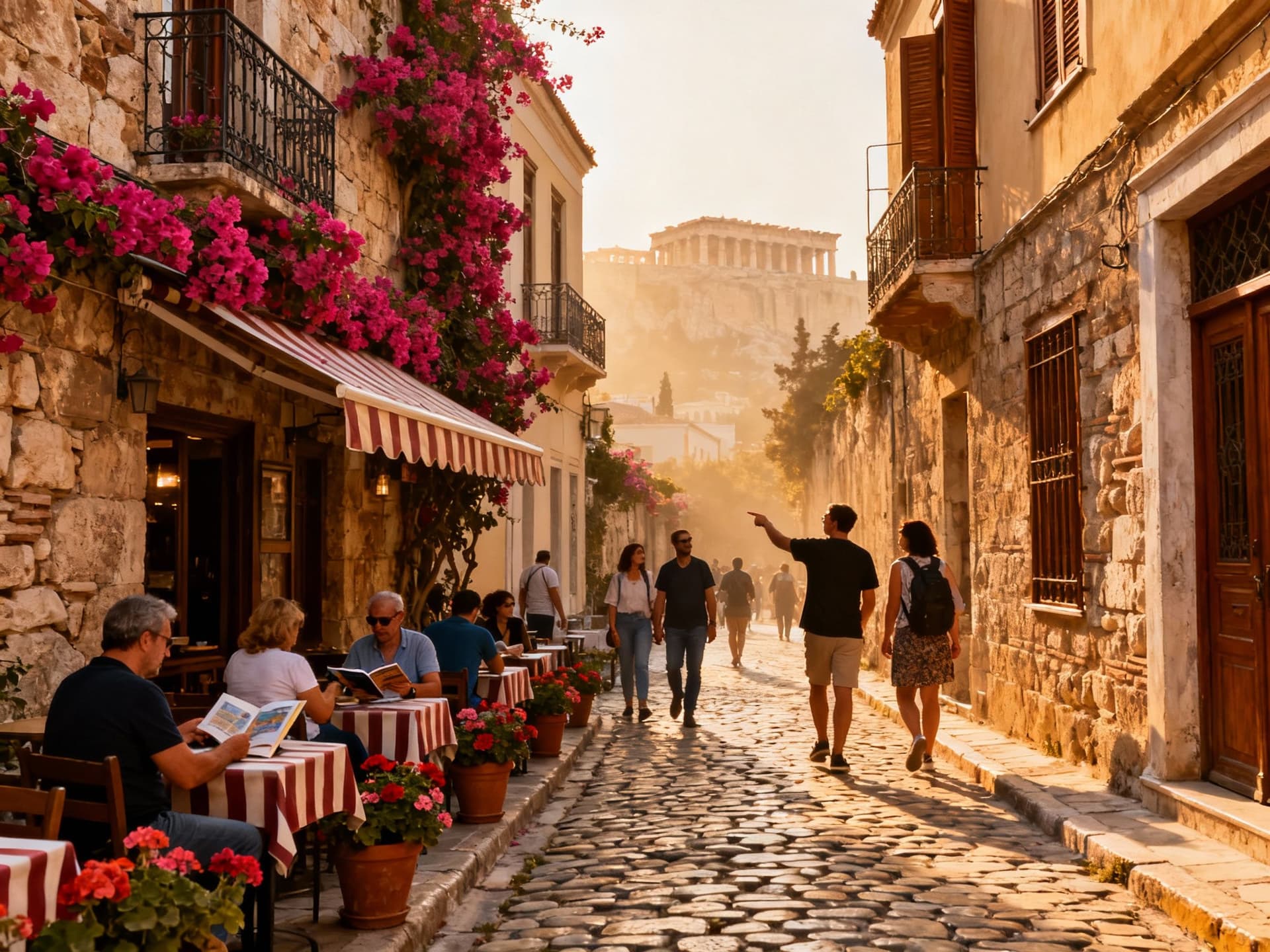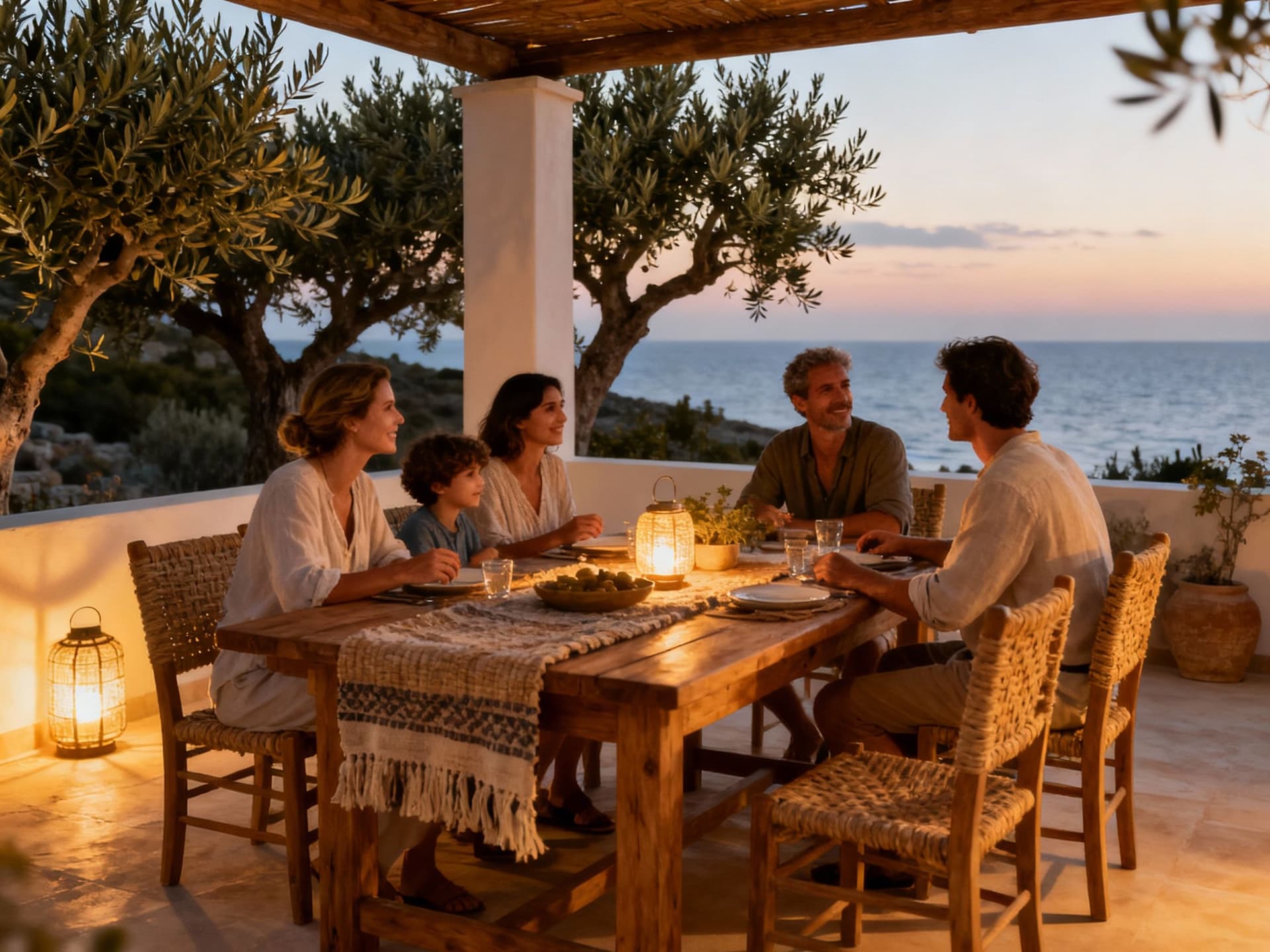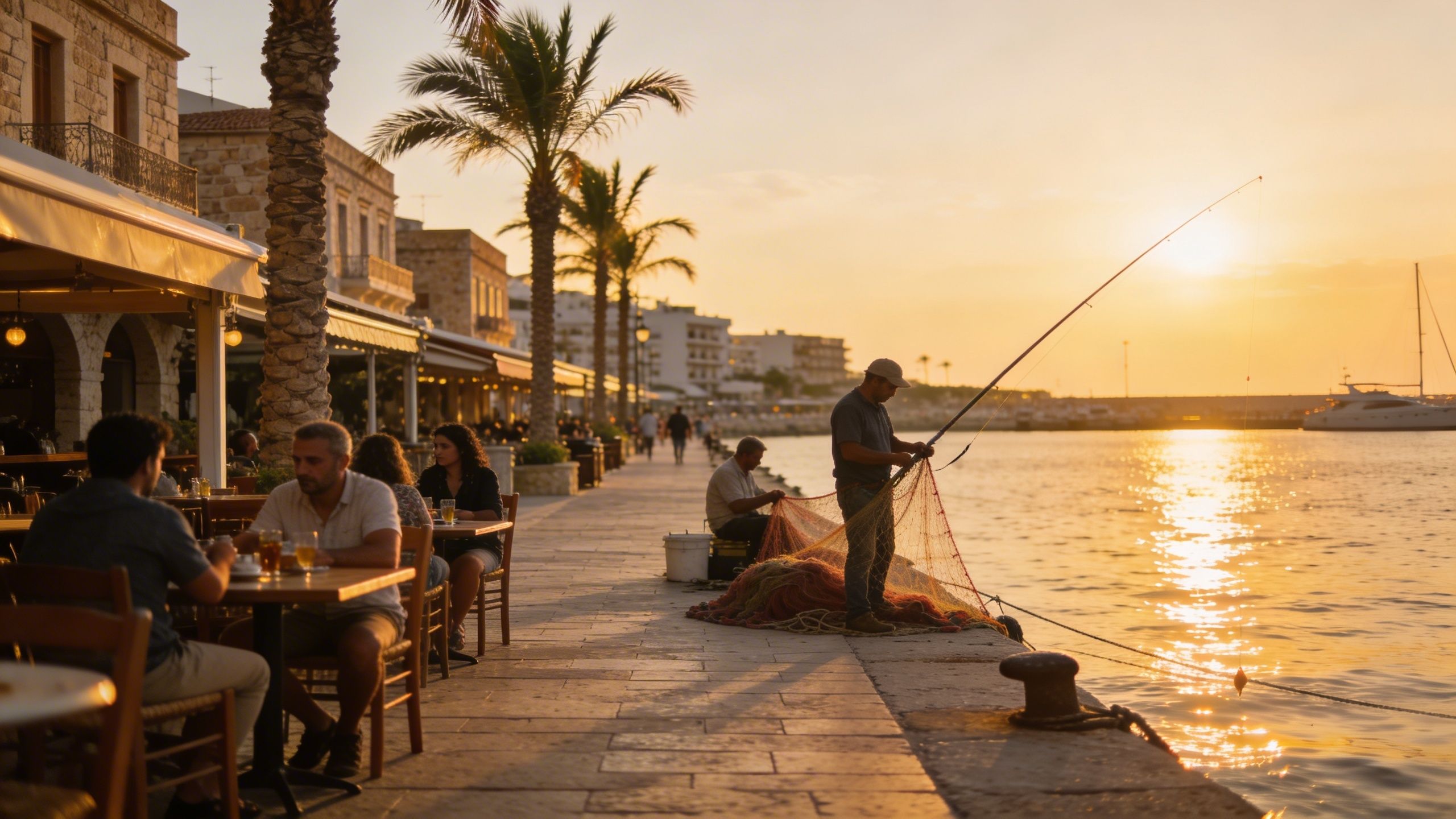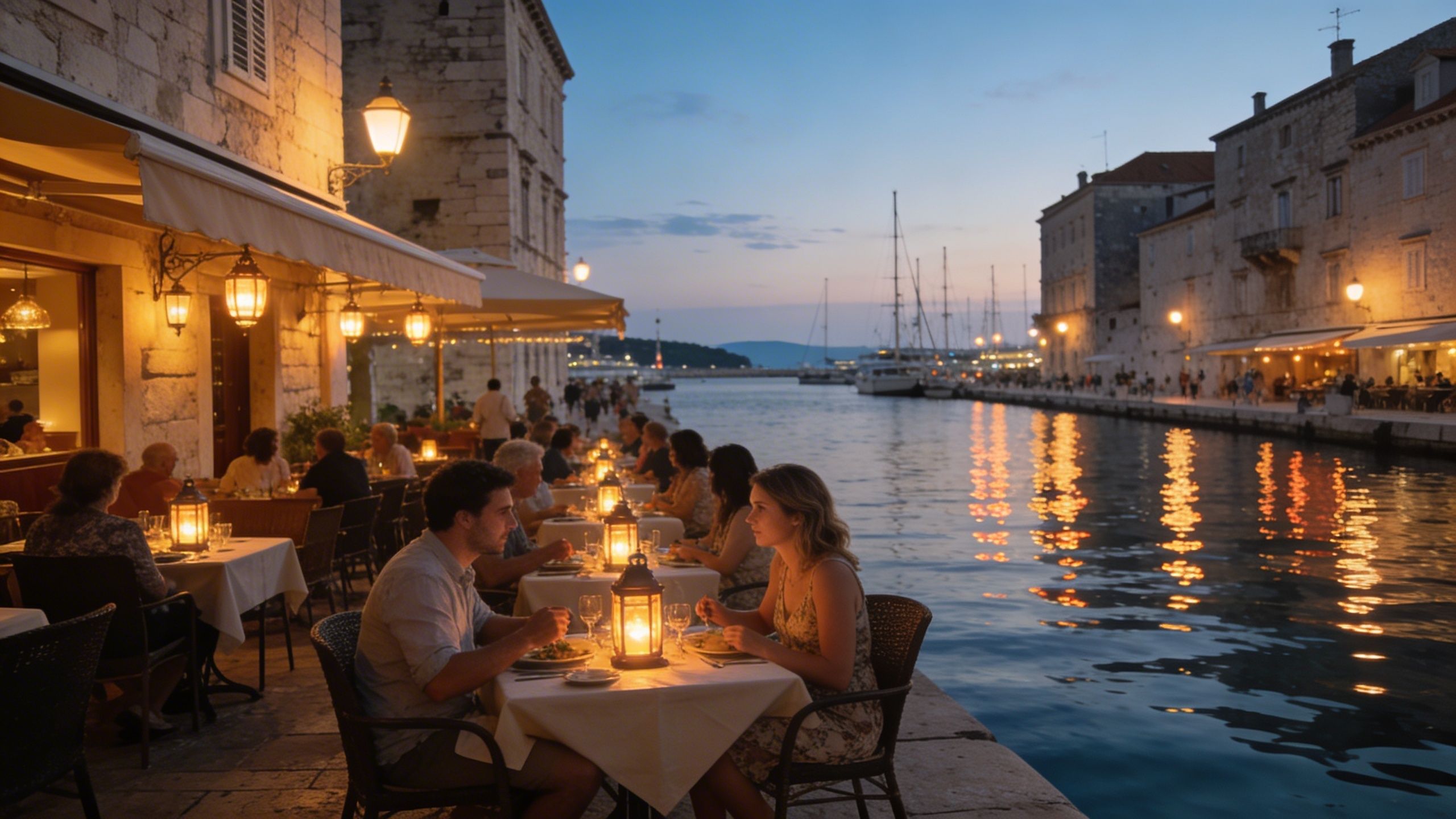Why summer house‑hunting in Greece can mislead buyers
Buying in Greece is sensual and seasonal. Learn why peak‑season viewings mislead buyers and how mortgage timing, local banks and neighbourhood choice change costs.
Imagine a late afternoon in Plaka: the light flattens the Acropolis marble to warm cream, a barista pulls a slow espresso beneath a plane tree and a pianist plays in a courtyard. That sensory certainty — sea air, citrus trees, market chatter — is the private currency that persuades many to buy in Greece. Yet the best moment to make that purchase, and the way you finance it, are often the least romantic parts of the story.
Living the Greek Life — what you buy is how you live

Greece is not a single pace. Athens mornings are for espresso and newspapers in Exarchia or Koukaki; late afternoons belong to Glyfada and Vouliagmeni where sea breezes make terraces into second living rooms. On the islands, Chania’s Venetian lanes offer measured days; Mykonos and Santorini pulse with seasonal intensity. Your property choice determines whether you live on a shaded stoop or a sheltered terrace with year‑round prospects.
Athenian neighbourhoods worth the walk
Kolonaki is compact elegance — 19th‑century facades, small galleries and discreet pâtisseries; Koukaki and Anafiotika offer narrow streets and a domestic, lived‑in charm; Kifisia provides leafy villas and late‑afternoon promenades. Each microdistrict prescribes a lifestyle: the cafés you join, the shops you frequent, the commute that will feel inevitable. Select a neighbourhood’s daily rhythm before you select its square metres.
Islands and coastal towns — seasons shape life and markets
On islands such as Naxos or Paros the year divides sharply between tourist months and the quieter remainder; cafe culture contracts into a few streets in winter. That contraction affects everything from utility bills to local services. If you prize an all‑season village life, look for places with a year‑round community — Chania, Syros or parts of Crete — rather than the headline glamour of high‑season hotspots.
- Lifestyle highlights: real places and small rituals
- Morning espresso at “Kehdros” in Koukaki; late‑afternoon swim off Vouliagmeni beach; Sunday market at Varvakios in Athens for fresh fish and herbs; a glass of assyrtiko at a family taverna in Oia; winter olives‑harvest weekends on the Peloponnese coast.
Making the move: practical financing realities

The romance of place must be matched by a clear view of finance. Greek property prices have been rising in recent years — Bank of Greece data show sustained increases across regions — while mortgage availability for non‑residents remains selective. International buyers commonly face higher deposit requirements, currency considerations and the need for a local tax number (AFM). Knowing which bank products exist, and when to apply, materially changes the cost of entry.
Property styles and what they mean for borrowing
Modern apartments in Athens’ recent developments are easier to mortgage with typical LTVs up to 70–80% for residents; older stone houses or island stone‑built villas often require larger deposits because banks adjust valuations for seasonal rental risk. If your plan includes restoration, lenders will want quantified budgets and quotations from licensed contractors before advancing renovation tranches.
Working with local experts: how agencies ease financing
A local agency that knows lenders, the cadastre (land registry) quirks and Greek notarial practice is indispensable. They will coordinate valuation surveys, translate offer terms into English, and introduce you to banks willing to accept foreign income or to mortgage brokers who assemble cross‑border financing packages. Their role is less about selling and more about translation — of local practice into international expectation.
- Step‑by‑step practical financing checklist
- Obtain an AFM (Greek tax number) and open a local bank account; commission a pre‑purchase valuation; agree deposit and completion terms in a reservation agreement with a notary‑drafted preliminary contract; discuss LTV and currency risk with banks or brokers; secure a mortgage offer in principle before committing to peak‑season purchases.
Insider knowledge: mistakes I’ve seen buyers make
A common error is buying in peak summer after being seduced by immaculate views and an overloaded market. Sellers price to the season; mortgage approvals slow while you are abroad. Another is assuming a high tourist yield will guarantee bank comfort: lenders scrutinise sustainable rental history, not optimistic booking calendars.
Cultural and seasonal realities that affect long‑term costs
Greek bureaucracy moves in rhythms shaped by municipal schedules, not international urgency. Cadastre backlogs can delay clear title; seasonal municipal closures mean permits and licences may take longer in summer. If you plan renovation work, schedule applications for autumn to avoid the slowdown that comes with island high season.
The long view: stewardship, resale and community
Think like a steward rather than a short‑term investor. Properties with provenance — neoclassical townhouses, restored stone mansions, well‑located terraces — retain desirability because they deliver year‑round life, not just summer income. That distinction affects mortgage terms, insurance and resale — and it is precisely the quality lenders and future buyers recognise.
- Red flags to spot early
- Unregistered extensions or basements; unclear cadastral records; properties listed repeatedly with different agents; utility irregularities; optimistic rental yield claims unsupported by a year‑long ledger.
Conclusion: fall in love with the place, and finance the life you want. Begin with neighbourhood walks and market hours, then secure an AFM and speak to a bank or broker with local experience. An agency that understands both provenance and paperwork will let you choose the right season to buy — not the season that buys you.
Dutch former researcher who moved to Lisbon, specialising in investment strategy, heritage preservation, and cross-border portfolio stewardship.


